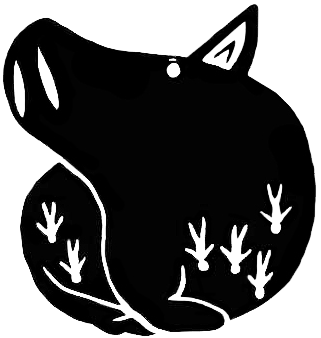Mar 4, 2019 20:40:25 GMT
Post by Æther on Mar 4, 2019 20:40:25 GMT
[nospaces]
[attr="class","opmind"]
[attr="class","opmindblurb"]
[attr="class","opmindblurb1"]
Arcanism is defined as the process of studying and excercising methods through which Aether can be manipulated. Arcanism is the most commonly used form of magic among the people of Eos. While it requires study and discipline to become a proper Arcanist, Arcanism comes in varying degrees of complexity. There are many simple spells and abilities that are easy to learn. These usually have little effect, such as lighting a candle, or making something float, or improving one's sight in the dark, but are nonetheless applications of Magic that must be thoroughly understood before they can be properly used. This is the general rule with Arcanism. Even a highly attuned person might fail to light a single candle because they lack the proper understanding behind the process of manipulating fire in such a way that it would perfectly light a wick. In contrast to this, there is a vast library of incredibly powerful Spells at every Arcanist's disposal. Even someone with very little attunement could be an incredibly powerful Arcanist because they have studied the inner workings of Aether to the extent that they can understand and practice Spells with ease.[break][break][break]
Invocation is defined as the process of calling upon the unique Imprint Aether can leave behind in a living creature. Invocation is a fairly common form of Magic, as becoming an Invoker and developing an Imprint can be a natural process within some people. To become an Invoker, Aether must create an Imprint within one's body. This is usually done by meditating on the presence and flow of Aether, but can happen to some people by simple chance. There are people that receive an Imprint at birth. The more attuned someone is, the more likely they are to develop an Imprint. These Imprints are linear abilities that have no specific structure and are different to every Invoker. Through Imprints, Invokers can cast magic without the use of Spells. Invocations follow as the process of drawing out the latent abilities of an Invoker's Imprint to great effect. Ultimately, Invocation, although taking practice and excercise to master, requires no actual study or knowledge of Aether like Arcanism does. But on the contrary, it requires a mage to be highly attuned and in touch with themselves and the Aether within them. [break][break][break]
Artifice is defined as the process of creating and using an object that can withstand the force of great quantities of Aether flowing through it. This happens through two main methods. Forging and Enchanting. In the forging process, an object is constantly imbued with Aether until its completion. This creates a so-called Vessel. A vessel is an object that is highly resistant to Aether. Then an Enchantment is placed upon a Vessel. To create an Enchantment a mage creates a Runic pattern, which expresses an ability, that is then placed upon the Vessel causing the ability to be imbued within the Vessel, turning it into an Artifact. An Enchantment can then be used by simply letting Aether flow through the Artifact. Artificers often choose weapons to Enchant, and more often than not also study the use of these weapons extensively. To some people, Artifice is considered a brutish practice as it was initially conceptualized for combat, but any Artificer would agree that it takes years of practice and study to craft a masterful Artifact.[break][break][break]
Theurgy is defined as the study and binding of attuned creatures. The abundance of magical entities in Serra has founded its own school of magic that allows Mages to use tame magical creatures to use for personal benefit. Theurgy uses a process called "Binding" to fully subdue an attuned creature and turn it into a Familiar. Common candidates for Familiars include elementals, specters, wyverns and serpents. After encountering a creature, one must Bind it to one's will by mentally subduing it by way of Enchantments. This can be done by force, which usually leads to a battle of the mind, and sometimes even the body, or can be done with the creature's consent. Some Familiars even seek out their owners. Ultimately the creature submits their to the user's will and becomes bound to a Theurgist's orders and wishes. Once this is done, a Theurgist can forcibly command a Familiar, even against their will. Theurgy has evolved to the point where Theurgists can even transmute a Familiar's abilities onto their own body. The more a Theurgist understands their Familiar's ability, the easier it will be for them to utilize them to their fullest.[break][break][break]
Arcanism
Arcanism is defined as the process of studying and excercising methods through which Aether can be manipulated. Arcanism is the most commonly used form of magic among the people of Eos. While it requires study and discipline to become a proper Arcanist, Arcanism comes in varying degrees of complexity. There are many simple spells and abilities that are easy to learn. These usually have little effect, such as lighting a candle, or making something float, or improving one's sight in the dark, but are nonetheless applications of Magic that must be thoroughly understood before they can be properly used. This is the general rule with Arcanism. Even a highly attuned person might fail to light a single candle because they lack the proper understanding behind the process of manipulating fire in such a way that it would perfectly light a wick. In contrast to this, there is a vast library of incredibly powerful Spells at every Arcanist's disposal. Even someone with very little attunement could be an incredibly powerful Arcanist because they have studied the inner workings of Aether to the extent that they can understand and practice Spells with ease.[break][break][break]
Invocation
Invocation is defined as the process of calling upon the unique Imprint Aether can leave behind in a living creature. Invocation is a fairly common form of Magic, as becoming an Invoker and developing an Imprint can be a natural process within some people. To become an Invoker, Aether must create an Imprint within one's body. This is usually done by meditating on the presence and flow of Aether, but can happen to some people by simple chance. There are people that receive an Imprint at birth. The more attuned someone is, the more likely they are to develop an Imprint. These Imprints are linear abilities that have no specific structure and are different to every Invoker. Through Imprints, Invokers can cast magic without the use of Spells. Invocations follow as the process of drawing out the latent abilities of an Invoker's Imprint to great effect. Ultimately, Invocation, although taking practice and excercise to master, requires no actual study or knowledge of Aether like Arcanism does. But on the contrary, it requires a mage to be highly attuned and in touch with themselves and the Aether within them. [break][break][break]
Artifice
Artifice is defined as the process of creating and using an object that can withstand the force of great quantities of Aether flowing through it. This happens through two main methods. Forging and Enchanting. In the forging process, an object is constantly imbued with Aether until its completion. This creates a so-called Vessel. A vessel is an object that is highly resistant to Aether. Then an Enchantment is placed upon a Vessel. To create an Enchantment a mage creates a Runic pattern, which expresses an ability, that is then placed upon the Vessel causing the ability to be imbued within the Vessel, turning it into an Artifact. An Enchantment can then be used by simply letting Aether flow through the Artifact. Artificers often choose weapons to Enchant, and more often than not also study the use of these weapons extensively. To some people, Artifice is considered a brutish practice as it was initially conceptualized for combat, but any Artificer would agree that it takes years of practice and study to craft a masterful Artifact.[break][break][break]
Theurgy
Theurgy is defined as the study and binding of attuned creatures. The abundance of magical entities in Serra has founded its own school of magic that allows Mages to use tame magical creatures to use for personal benefit. Theurgy uses a process called "Binding" to fully subdue an attuned creature and turn it into a Familiar. Common candidates for Familiars include elementals, specters, wyverns and serpents. After encountering a creature, one must Bind it to one's will by mentally subduing it by way of Enchantments. This can be done by force, which usually leads to a battle of the mind, and sometimes even the body, or can be done with the creature's consent. Some Familiars even seek out their owners. Ultimately the creature submits their to the user's will and becomes bound to a Theurgist's orders and wishes. Once this is done, a Theurgist can forcibly command a Familiar, even against their will. Theurgy has evolved to the point where Theurgists can even transmute a Familiar's abilities onto their own body. The more a Theurgist understands their Familiar's ability, the easier it will be for them to utilize them to their fullest.[break][break][break]



























